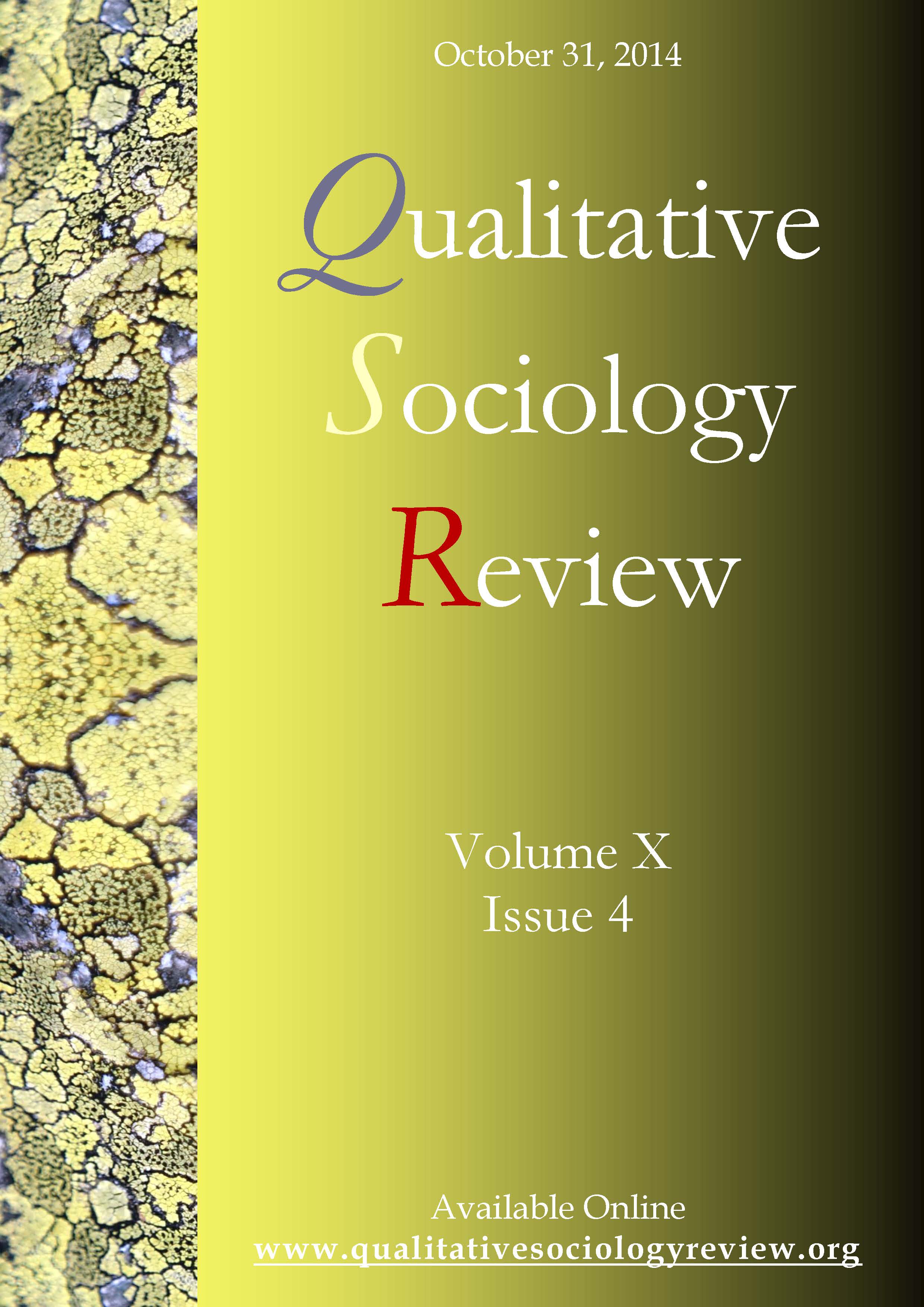The River That Crosses an Ocean: Ifa/Orisha in the Global Spiritual Marketplace
DOI:
https://doi.org/10.18778/1733-8077.10.4.06Keywords:
Ifa, Orisha, Yoruba, Ogun, Osun, Nigeria, African Religion and SpiritualityAbstract
Ifa/Orisha, the traditional spiritual practice of the Yoruba nation, has entered the global spiritual marketplace. With thousands of worshipers on both sides of the Atlantic, practitioners and participants are engaging new arenas of discourse. In southwest Nigeria, storytellers are expressing the living religion through narratives that are relevant, adaptable, and meaningful in a plurality of contexts. From the often antagonistic relationship between Ifa/Orisha and the Abrahamic faiths, to the challenges posed by modernity and globalization, practitioners are renegotiating the identity of their religion in social and philosophical ways. Interpreting data gathered from interviews conducted in Nigeria and the United States, I present a qualitative analysis of how practitioners, participants, and non-practitioners interact with the fundamental premises underlying the matrix of symbols, rites, and narratives that represent traditional Yoruba religion.
Downloads
References
Abimbola, Wande. 1976. Ifá: An Exposition of Ifá Literary Corpus. Ibadan: Oxford University Press.
Google Scholar
Abimbola, Wande. 1977. Ifá Divination Poetry. New York: NOK Publishers.
Google Scholar
Adelakun, Abimbola. 2010. “Derided, Misrepresented, Ifa Priests Tell Their Stories.” The Punch News. Retrieved September 16, 2014 http://egregores.blogspot.com/2010/05/such-is-relationship-between-africans.html
Google Scholar
Amherd, Noel K. 2010. Reciting Ifá: Identity, Difference, and Heterogeneity. Trenton, NJ: Africa World Press.
Google Scholar
Armstrong, Robert G. 1997. “The Etymology of the Word ‘Ogun.’” Pp. 29-38 in Africa’s Ogun: Old World and New, edited by Sandra T. Barnes. Indianapolis: Indiana State University.
Google Scholar
Barnes, Sandra T. 1997. “Introduction: The Many Faces of Ogun.” Pp. 1-26 in Africa’s Ogun: Old World and New, edited by Sandra T. Barnes. Indianapolis: Indiana State University.
Google Scholar
Barnes, Sandra T. and Paula Girshick Ben-Amos. 1997. “Ogun, the Empire Builder.” Pp. 39-64 in Africa’s Ogun: Old World and New, edited by Sandra T. Barnes. Indianapolis: Indiana State University.
Google Scholar
Bascom, William. 1969. Ifá Divination. Communication Between Gods and Men in West Africa. Bloomington, London: Indiana University Press.
Google Scholar
Bascom, William. 1980. Sixteen Cowries. Yoruba Divination From Africa to the New World. Bloomington: Indiana University Press.
Google Scholar
Brown, Karen McCarthy. 1997. “Systematic Remembering, Systematic Forgetting: Ogou in Haiti.” Pp. 65-89 in Africa’s Ogun: Old World and New, edited by Sandra T. Barnes. Indianapolis: Indiana State University.
Google Scholar
Carrette, Jeremy and Richard King. 2005. Selling Spirituality: The Silent Takeover of Religion. London: Routledge.
Google Scholar
DOI: https://doi.org/10.4324/9780203494875
Cox, James L. 2001. “Missionaries, the Phenomenology of Religion, and ‘Re-Presenting’ 19th Century African Religion: A Case Study of Peter McKenzie’s ‘Hail Orisha!’” Journal of Religion in Africa 31(3):336-353.
Google Scholar
DOI: https://doi.org/10.1163/157006601X00202
Drewal, Margaret Thompson. 1997. “Dancing for Ògun in Yorubaland and Brazil.” Pp. 199-234 in Africa’s Ogun: Old World and New, edited by Sandra T. Barnes. Indianapolis: Indiana State University.
Google Scholar
Durkheim, Emile. 1995. The Elementary Forms of Religious Life. New York: The Free Press.
Google Scholar
Eleburuibon, Ifayemi. 1989. The Adventures of Obatala. Part 1. Oyo State: A. P. I. Production.
Google Scholar
Eleburuibon, Ifayemi. 1998. The Adventures of Obatala. Part 2. Lynwood, CA: Ara Ifa Publishing.
Google Scholar
Eleburuibon, Ifayemi. 2004. Ifá: The Custodian of Destiny. Ibadan: Penthouse Publications.
Google Scholar
Fama, Chief. 1994. Sixteen Mythological Stories of Ifá. San Bernardino, CA: Ile Qrunmila Communications.
Google Scholar
Flores-Peña, Ysamur. 2001. “Overflowing the Beauty: Ochún Altar in Lucumí Aesthetic.” Pp. 113-127 in Osun Across the Waters: A Yoruba Goddess in Africa and the Americas, edited by Mei- -Mei Sanford, Joseph Murphy. Bloomington: Indiana University Press.
Google Scholar
Hale, Lindsay. 2001. “Mama Oxum: Reflections of Gender and Sexuality in Brasilian Umbanda.” Pp. 213-229 in Osun Across the Waters: A Yoruba Goddess in Africa and the Americas, edited by Mei-Mei Sanford, Joseph Murphy. Bloomington: Indiana University Press.
Google Scholar
Kehoe, Alice Beck. 2006. The Ghost Dance: Ethnohistory and Revitalization. Long Grove, IL: Waveland Press.
Google Scholar
Marriott, McKim, (ed.). 1955. Village India: Studies in the Little Community. Chicago: University of Chicago Press.
Google Scholar
Mauss, Marcel. 2001. A General Theory of Magic. London: Routledge.
Google Scholar
McKenzie, Peter. 1976. “Yoruba Orisa Cults: Some Marginal Notes Concerning Their Cosmology and Concepts of Deity.” Journal of Religion in Africa 8(3):189-207.
Google Scholar
DOI: https://doi.org/10.1163/157006676X00039
Murphy, Joseph M. 2001. “Yéyé Cachita: Ochún in a Cuban Mirror.” Pp. 87-101 in Osun Across the Waters: A Yoruba Goddess in Africa and the Americas, edited by Mei-Mei Sanford, Joseph Murphy. Bloomington: Indiana University Press.
Google Scholar
Nicklas, Michael A. 1990. “Mythology, Knowledge, and Power: An Examination of Social Forces in Brazil and the Emergence of Umbanda.” Folklore Forum 23(1/2):85-97.
Google Scholar
Peel, J.D.Y. 1997. “A Comparative Analysis of Ogun in Precolonial Yorubaland.” Pp. 263-289 in Africa’s Ogun: Old World and New, edited by Sandra T. Barnes. Indianapolis: Indiana State University.
Google Scholar
Pemberton, John. 1997. “The Dreadful God and Divine King.” Pp. 105-146 in Osun Across the Waters: A Yoruba Goddess in Africa and the Americas, edited by Mei-Mei Sanford, Joseph Murphy. Bloomington: Indiana University Press.
Google Scholar
Probst, Peter. 2004. “Keeping the Goddess Alive: Performing Culture and Remembering the Past in Oshogbo, Nigeria.” Social Analysis 48(1):33-54.
Google Scholar
DOI: https://doi.org/10.3167/015597704782352807
Prus, Robert. 1997. Subcultural Mosaics and Intersubjective Realities. An Ethnographic Research Agenda for Pragmatizing the Social Sciences. Albany: State University of New York Press.
Google Scholar
Ryan, Patrick J. 1980. “‘Arise, O God!’ The Problem of ‘Gods’ in West Africa.” Journal of Religion in Africa 11(3):161-171.
Google Scholar
DOI: https://doi.org/10.1163/157006680X00115
Walker, Sheila S. 1980. “African Gods in the Americas: The Black Religious Continuum.” The Black Scholar 11(8):25-36.
Google Scholar
DOI: https://doi.org/10.1080/00064246.1980.11760824
Weber, Max. 1946. From Max Weber: Essays in Sociology. Edited by Hans Gerth, C. Wright Mills. New York: Oxford University Press.
Google Scholar
Weber, Max. 1963. The Sociology of Religion. Boston: Beacon Press.
Google Scholar
Downloads
Published
How to Cite
Issue
Section
License

This work is licensed under a Creative Commons Attribution-NonCommercial-NoDerivatives 4.0 International License.











